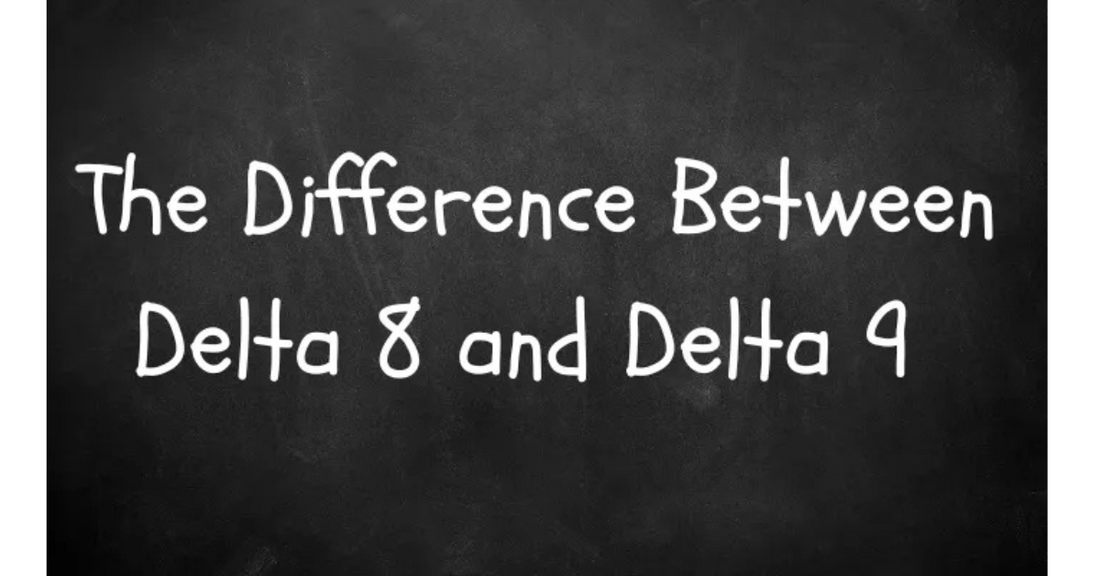
THC Infused Drinks: The Difference Between Delta 8 and Delta 9
Share
Many people wonder and ask about the differences between Delta-8 and Delta-9 THC.
As the cannabis industry continues to grow, it’s essential to understand these two cannabinoids and their effects on our bodies. In this article we’ll dive into the world of delta 8 vs delta 9, exploring their chemical structures, legal status, and health-helpful uses.
The 2018 Farm Bill
The 2018 Farm Bill ushered in a new era of possibilities for hemp-derived cannabinoids, sparking interest in compounds like delta-8 tetrahydrocannabinol (delta-8 THC) and delta-9 tetrahydrocannabinol (delta-9 THC).
Both cannabinoids can be derived from hemp, and they offer distinct experiences while abiding by legal requirements.
It’s our objective to explore the differences between delta-8 THC and delta-9 THC derived from hemp, and to shed some light on their legal status and the potential benefits they can provide.
The Difference Between Delta 8 and Delta: What is the Farm Bill?
The farm bill is an omnibus, multiyear law that governs an array of agricultural and food programs. It provides an opportunity for policymakers to comprehensively and periodically address agricultural and food issues. In addition to developing and enacting farm legislation, Congress is involved in overseeing its implementation.
The farm bill typically is renewed about every five years. Since the 1930s, Congress has enacted 18 farm bills.
Farm bills traditionally have focused on farm commodity program support for a handful of staple commodities— corn, soybeans, wheat, cotton, rice, peanuts, dairy, and sugar.
Farm bills have become increasingly expansive in nature since 1973, when a nutrition title was first included. Other prominent additions since then include horticulture and bioenergy titles and expansion of conservation, research, and rural development titles.

The Difference Between Delta 8 and Delta: A Brief Overview of Each
1. Chemical Structure
Delta-8 THC: Naturally occurring as a minor cannabinoid in hemp, delta-8 THC shares a similar chemical structure with delta-9 THC, differing slightly in the positioning of a double bond within the molecule.
Delta-9 THC: Although delta-9 THC is primarily associated with marijuana, it can also be derived from hemp as long as it adheres to the legal limit of no more than 0.3% delta-9 THC content on a dry weight basis.
2. Psychoactive Potency
Delta-8 THC: One of the key attractions of delta-8 THC is its ability to provide a gentler, more manageable psychoactive experience compared to delta-9 THC.
Delta-9 THC: Users often report feelings of euphoria and relaxation without the heightened anxiety or paranoia often associated with delta-9 THC.
3. Legality
Delta-8 THC: The 2018 Farm Bill legalized hemp-derived cannabinoids, including delta-8 THC, as long as they comply with the legal requirement of containing no more than 0.3% delta-9 THC on a dry weight basis. State regulations may vary.
Delta-9 THC: While delta-9 THC remains a Schedule I controlled substance at the federal level in the United States, it can still be derived from hemp within legal limits, as dictated by the 2018 Farm Bill.
The Positive Benefits of Both
1. Delta-8 THC
Pain Management: Delta-8 THC is emerging as a promising analgesic, offering effective pain relief without the intense high associated with delta-9 THC.
Anxiety Reduction: For individuals seeking relaxation without overwhelming anxiety, delta-8 THC's anxiolytic properties make it a valuable option for stress and anxiety management.
Appetite Stimulation: Similar to delta-9 THC, delta-8 THC can stimulate appetite. This property can be especially beneficial for individuals with medical conditions that suppress their appetite.
2. Delta-9 THC
Pain Relief: Delta-9 THC, whether derived from marijuana or hemp, is renowned for its potent pain-relieving properties. It is commonly used to manage chronic pain conditions.
Nausea and Vomiting Control: Delta-9 THC is highly effective in reducing nausea and vomiting, providing much-needed relief to patients undergoing chemotherapy and radiation.
Appetite Stimulation: Delta-9 THC's ability to induce hunger, often referred to as the "munchies," can be beneficial for individuals with medical conditions that affect their appetite, whether it's derived from marijuana or hemp.

The Difference Between Delta 8 and Delta: Conclusion
The 2018 Farm Bill has opened doors to a world of hemp-derived cannabinoids, allowing consumers to explore the potential benefits of compounds like delta-8 THC and delta-9 THC within legal boundaries.
Whether you choose delta-8 for its milder high or delta-9 for its potent therapeutic effects, it's crucial to understand the distinctions between these cannabinoids and their legal status.
Always ensure compliance with local regulations and consult with a healthcare professional before incorporating any cannabinoids into your wellness routine.
These cannabinoids, whether delta-8 or delta-9, have the potential to provide relief and enhance well-being for those who choose to explore their benefits responsibly.

Have you tried Mystic Beverage?
We are thrilled to introduce our innovative and refreshing alcohol-free adult beverage: THC cannabis-infused sparkling water drinks.
Crafted with the utmost care, our sparkling water combines the therapeutic properties of Delta 8 THC and Delta 9 THC with the delightful flavors of all-natural blood orange, southern berry, watermelon, and mango.
Each sip offers not only a burst of refreshing taste but also the numerous benefits of cannabis, including relaxation, improved sleep, anxiety relief, anti-inflammatory support, and overall well-being – all without the need for pharmaceutical drugs or alcohol.
